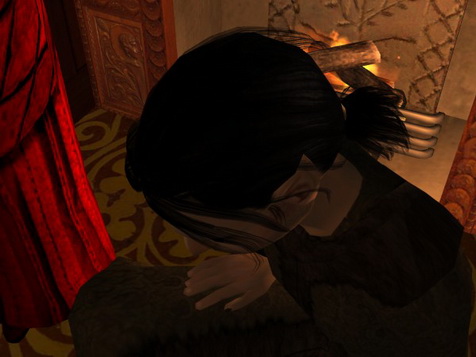
Manhood had stolen upon Osh as winter came upon the trees. Leaf by leaf his elfhood had been dropping away.
Now he ate food made from the milk of animals and painted by the light of candles made from their fat. He chased rats and spiders from his house because they frightened the women. He worried about wolves and patted dogs.
Sometimes he traded his work for stamped bits of metal that he could trade for other things he desired—so long as he desired a man’s things—a man’s saddle or a man’s cloak. What elven things he had he was wearing out and using up, and what he could not make he could no longer have.
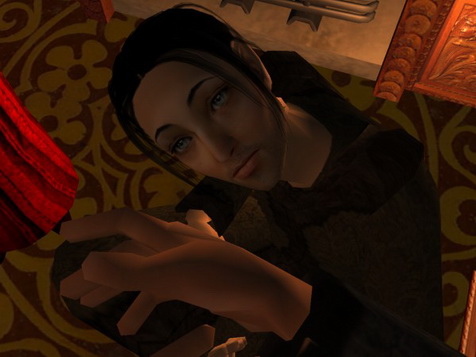
One day he had cut his thumb and sworn aloud in English, grandly, like the Old Man. One day he had begun reckoning time by the sun. One day he had stopped cutting his hair.
Living among the men had been a long tale of giving up and giving up, and tonight the last leaf would fall. If baptism meant he would be reborn into a new life, as the Abbot said, it also meant that his old life would have to die.
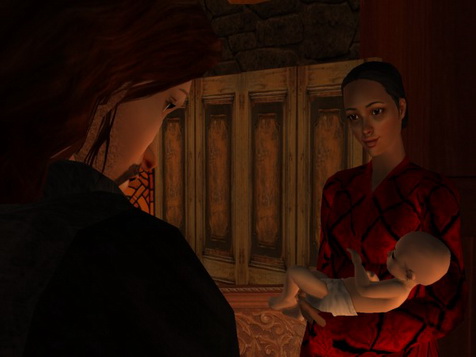
But Flann seemed brave and calm as she had not been in so long—in weeks, perhaps, as men reckoned time. Somehow she could draw strength out of him even when his own was failing. But perhaps this was no surprise—somehow she had drawn love out of him when his love had run dry.
For this woman and her daughter he thought he could give up his old life almost gladly. For them he would even give up the new.
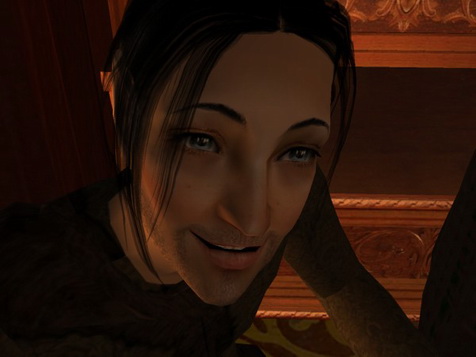
Liadan watched these uncustomary proceedings with a gravity that even Osh’s wiggled eyebrows could not disturb. After the first cold splash of water on his forehead, however, he no longer tried to make her smile. After the second, it was only the wintry calm of her gray eyes that kept him on the floor.
The chill of the water sank into him like frost into the rootbed of a tree. His hands shook like bare branches in a wind. In an instant he would no longer be an elf but for his memories and his pointed ears. It was not too late! he heard his father cry.
And then it was.
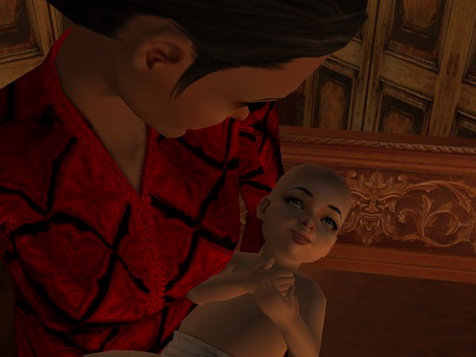
Liadan smiled only as the last drops touched his face, and she reached up a hand, as she had begun reaching for things that interested her, as if she had seen the last leaf fall.
As the Abbot droned on in Latin, the baby tilted her head slowly down, following something unseen with her eyes, until the path of her gaze passed through Osh’s.
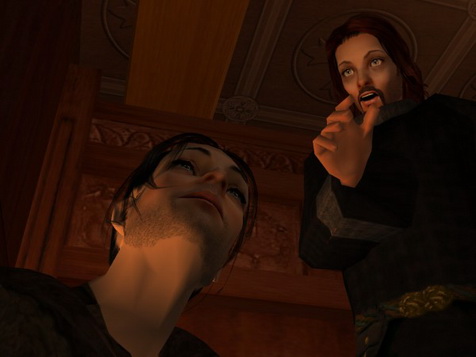
And then, for an instant, like a reflection at the back of her gray eyes, he could see her nature even without touching her: a white light, greatly distant but boundlessly bright.
She opened her mouth in a grin and shook with her voiceless, breathless, excited laughter until the Abbot’s hand passed between Osh’s face and hers, marking his forehead with the sign of the Cross. By the time the hand had moved on, she was only smiling sagely, like a little lady who had a secret to keep.
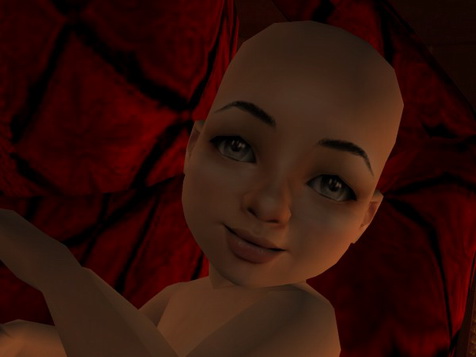
Osh felt no different afterwards—he had no more strength, no new wisdom or magic that would help him battle demons; and though he had crossed over forever into the life of men, he was no more dead nor more alive than before—but Liadan had seen something.
This new life did not strike him all at once like a sudden spring; but like the trees, who felt it stirring in their buds while the snow was still deep, he knew now the spring would come.
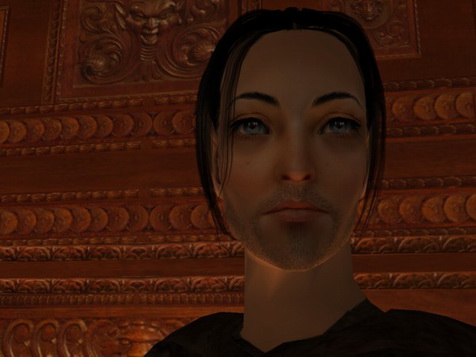







It is posts like these that almost make me want to fast forward several years and see what kind of person Liadan will become.